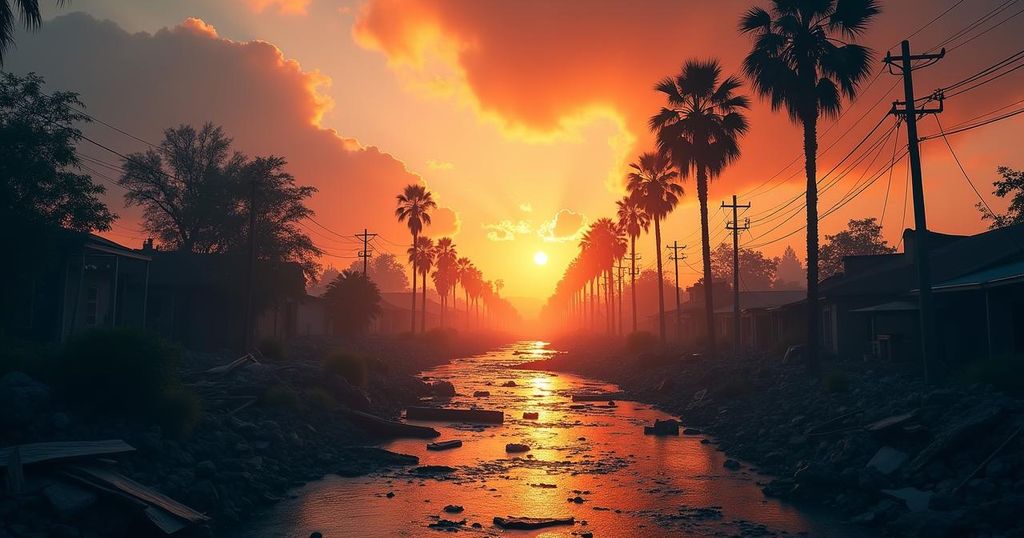Hurricane Helene’s Death Toll Reaches 189: A Devastating Reminder of Nature’s Fury
Hurricane Helene has claimed 189 lives and remains the deadliest storm in the United States since Hurricane Katrina. The fatalities cover six states, with North Carolina experiencing the highest toll. Hundreds remain unaccounted for, and historical studies suggest that the impact of such storms could lead to thousands of additional deaths in the years following the event.
Hurricane Helene has become the deadliest storm to impact the United States since Hurricane Katrina, which occurred in 2005, as the death toll has tragically reached 189. This figure is anticipated to increase further, given that hundreds of individuals remain unaccounted for after the storm. The fatalities span across six states in the southeastern United States, with North Carolina experiencing the highest number of casualties at 95. South Carolina follows with 39 deaths, while Georgia, Florida, Tennessee, and Virginia have recorded 25, 19, 9, and 2 deaths respectively, as reported by CNN. Among those who have lost their lives are numerous first responders and public servants who courageously continued their duties despite the perilous conditions posed by the storm. Notable fatalities include South Carolina firefighters Chad Satcher and Landon Bodie, who were killed when a tree struck their fire engine. Additionally, Sheriff’s Captain Michelle Quintero lost her life after being swept away by floodwaters while driving to oversee inmates at her facility. In North Carolina, Deputy Jim Lau tragically drowned during a lunch break while on duty, and veteran firefighter Vernon Davis died in a similar manner while clearing roads in Blackshear. The rural and mountainous regions of North Carolina are particularly challenging to navigate, with reports indicating that approximately 600 individuals are unaccounted for due to disrupted communication lines and severed infrastructure. President Biden expressed concern over this situation, stating, “There are reports of up to 600 people unaccounted for because they can’t be contacted. God willing, they’re alive.” As recovery efforts continue, there is a grim possibility that the death toll may rise significantly in the years ahead, as evidenced by studies which suggest powerful storms could lead to an undocumented mortality burden, prompting between 7,000 and 11,000 deaths over a 15-year period. This manifests as a cumulative effect of health issues and economic disadvantages following such catastrophes. Historical context indicates that aside from Hurricane Katrina, Helene’s death toll is unmatched in over six decades, with Hurricane Camille in 1969 being the only other storm with a higher death toll, claiming 256 lives.
Hurricane Helene has emerged as one of the most devastating storms the United States has faced since the catastrophic Hurricane Katrina in 2005. The storm has impacted several southeastern states, leading to significant casualties and profound infrastructural damage. The challenge of recovery is exacerbated by the loss of life among first responders, which further underscores the storm’s severity. This event highlights not only the immediate human toll of hurricanes but also the long-term effects they can have on communities, as evidenced by historical mortality patterns following such natural disasters.
In conclusion, Hurricane Helene has resulted in a tragic loss of life, marking it as the deadliest storm since Hurricane Katrina. The extensive damage and ongoing search for the missing reflect the need for immediate response and long-term recovery strategies. The lingering effects of such storms warrant ongoing attention to mitigate future impacts on public health and safety. This hurricane serves as a stark reminder of the real dangers posed by severe weather events and the importance of preparedness and efficient disaster response measures.
Original Source: nypost.com




Post Comment